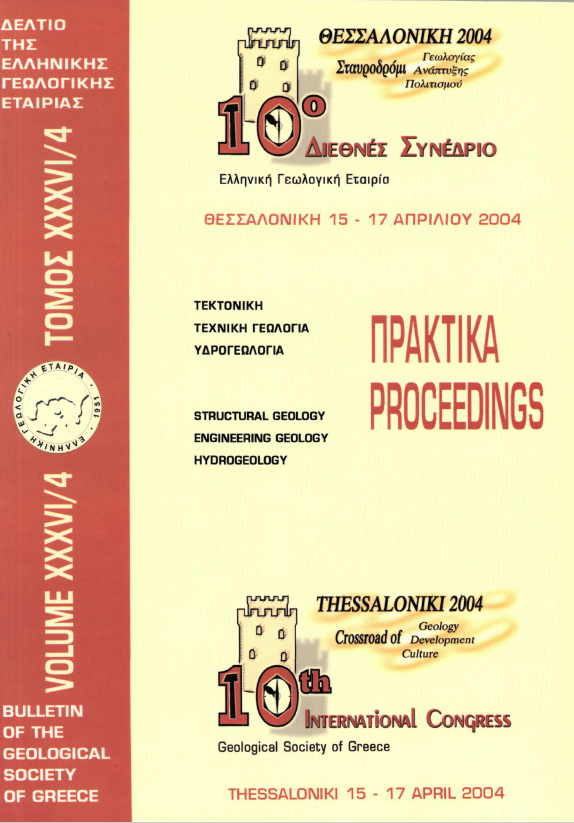LIQUEFACTION PHENOMENA TRIGGERED BY THE EARTHQUAKE OF AUGUST 14,2003, IN THE ISLAND OF LEFKADA, GREECE
Résumé
In the early morning of August 14, 2003 (05:14:53.9 GMT; 08:14:54 local time), a strong (Ms=6.4, Mw=6.2, a=0.42g) damaging earthquake occurred offshore the NW coast of Lefkada Island (Ionian, Greece). According to the Seismological laboratory of Aristotle University Of Thessaloniki, its focus was located at 38.86 N, 20.73 E (fig. 1 ) at depth h = 10km. Extensive ground failures (rock falls, liquefaction, cracks) were observed. The maximum intensity has been evaluated lo = Vili (EMS) at Lefkas municipality. Historical evidence of liquefaction show that the island suffered from similar co-seismic effects from past earthquakes, especially from 1914 and 1948 shocks. From the liquefaction sites, representing samples of the ejected soil were examined with a view to evaluate the liquefaction susceptibility of them. The results of the laboratory tests show that according to the Chinese Criteria (Wang 1979) these soils are considered to be of high potentially liquéfiable type.
Article Details
- Comment citer
-
Παπαθανασίου Γ., Παυλίδης Σ., Χρηστάρας B., & Πιτιλάκης K. (2004). LIQUEFACTION PHENOMENA TRIGGERED BY THE EARTHQUAKE OF AUGUST 14,2003, IN THE ISLAND OF LEFKADA, GREECE. Bulletin of the Geological Society of Greece, 36(4), 1796–1805. https://doi.org/10.12681/bgsg.16650
- Rubrique
- Engineering Geology, Hydrogeology, Urban Geology

Ce travail est disponible sous licence Creative Commons Attribution - Pas d’Utilisation Commerciale 4.0 International.
Authors who publish with this journal agree to the following terms:
Authors retain copyright and grant the journal right of first publication with the work simultaneously licensed under a Creative Commons Attribution Non-Commercial License that allows others to share the work with an acknowledgement of the work's authorship and initial publication in this journal.
Authors are able to enter into separate, additional contractual arrangements for the non-exclusive distribution of the journal's published version of the work (e.g. post it to an institutional repository or publish it in a book), with an acknowledgement of its initial publication in this journal. Authors are permitted and encouraged to post their work online (preferably in institutional repositories or on their website) prior to and during the submission process, as it can lead to productive exchanges, as well as earlier and greater citation of published work.



